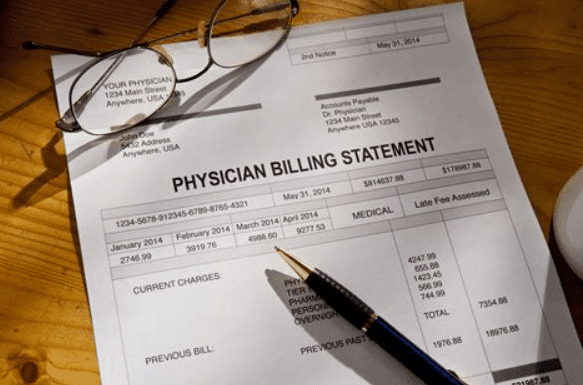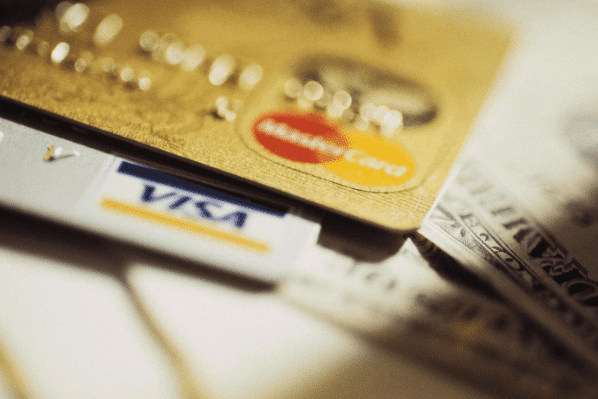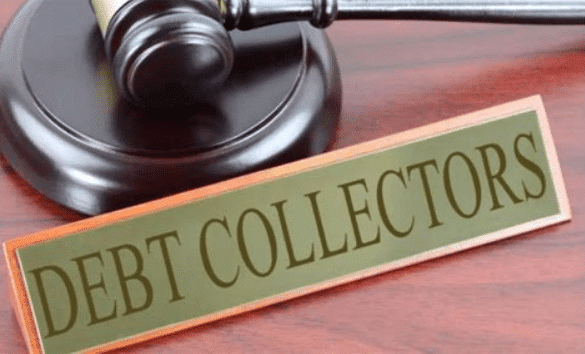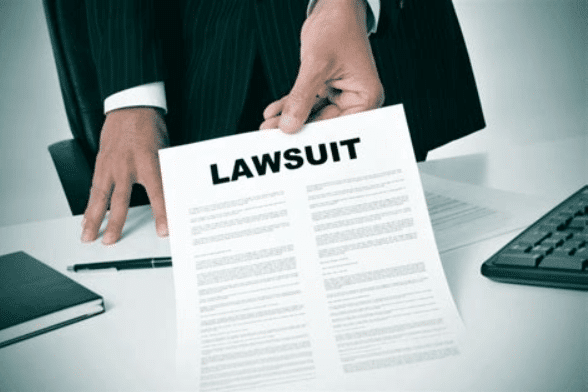T-Mobile calls themselves the “uncarrier.” ZumaZip.com Can Help You. When it comes to debt collection, T-Mobile Support Telephone is like all the rest. Here’s their contact number and how to beat them in court.
T-Mobile, one of the leading mobile communications companies in the industry, is infamous for engaging in unfair debt collection practices. Many customers claim to receive calls from debt collection agencies without prior notification about the debt they owe.
The bad news is that debtors are hardly allowed to negotiate a settlement with the company. As such, making full or partial payments doesn’t stop the company from adding your account to your credit report damaging your credit score for up to seven years.
Some debtors prefer working with T-Mobile directly instead of the debt collection agency but don’t know how to contact the company. This article explains how you can get in touch with the company for debt collection.
Respond to debt collectors fast with ZumaZip.com.
Get to Know T-Mobile
T-Mobile is the brand name the German telecommunications company Deutsche Telekom AG uses on its mobile communications subsidiaries. The name is active in many countries, including the United States, T-Mobile US, the Netherlands, Czech Republic, and Poland.
The company’s headquarters is based in Bonn, Germany, with satellite companies operating GSM-UMTS and LTE-Based cellular networks in the United States, Europe, Virgin Islands, and Puerto Rico.
In the United States, T-Mobile came to the limelight after launching the ‘un-carrier’ campaign. The campaign allowed customers to sign up for T-Mobile services without the two-year service contract many providers required at the time.
T-Mobile’s Debt Collection Practices
T-mobile’s advertising and unfair debt collection practices made headlines for the better part of 2015 and 2016. Many consumers alleged that the company was charging debt despite eliminating the two-year service contracts and introducing the no-interest consumer loan for purchasing phones and other equipment.
The no-interest consumer loan is called an Equipment Installment Plan and was introduced to help customers manage the high cost of purchases. While the product increased its customer base, it was the beginning of its debt collection woes.
One of the complaints filed by Change to Win with the Consumer Financial Protection Bureau called for an investigation into T-Mobile’s misleading advertisements and abusive debt collection practices.
According to the complaint, customers who canceled the company’s wireless service before the end of two years made the amount remaining on the Equipment Installment Plans due. The amount is often larger than the penalties associated with the early termination of traditional two-year service contracts.
A review of 5500 customer complaints with the Better Business Bureau found that more than 300 current and former customers were unaware of the EIP fee. Other customers cited receiving little or no notice before their debts were referred to a collection agency.
Change to Win explained that T-Mobile had contracted up to eight third-party collectors and made it difficult for customers to contest those debts. Also, the company provides inaccurate reports about the debt owed and hardly responds to debt verification requests.
Make the right affirmative defenses with ZumaZip.com.
FDCPA and FCRA Regulations for Debt Collection
According to regulatory compliance at the federal and state level, debt collection must be fair and honest. Two acts have been formulated to ensure fairness in debt collection: FDCPA and FCRA. The Fair Debt Collections Practices Act (FDCPA) outlines what construes abusive and deceitful debt collection practices. In a nutshell, it prohibits debt collectors from:
- Calling you before 8 am or after 9 pm
- Harassing, oppressing, or abusing you
- Using unfair practices
- Disregarding a written request from the debtor to cease further contact
T-Mobile seems to violate all such practices and regulations stipulated by the Fair Credit Reporting Act (FCRA). The act:
- Stipulates the information that should be included in credit reports
- Allows debtors to dispute debt charged if inaccurate information is included in the lawsuit
- Dictates how debt collectors can report to credit reporting agencies
- Requires creditors to furnish accurate and complete information to debt collectors
- Debt collectors must have policies and procedures to verify they’re reporting information about the right person.
- They should also correct and update the information when necessary.
- Debt collectors should maintain records for a reasonable amount of time.
Resolve Your Debt with T-Mobile
The first thing you want to do is contact T-Mobile at (800)-937-8997 to verify the amount of debt you owe. If they can’t help, enlist the help of a debt collection law firm or professional. The representative should help you determine the amount of debt owed and negotiate affordable debt settlement terms.
Use ZumaZip.com to respond to debt collectors and win in court.
Remove T-Mobile Collections From Your Credit Report
Paying debt in full or partially doesn’t prevent T-Mobile from reporting you to the credit bureau. First, the company reports you to a debt collection agency, and if you still can’t settle the debt, it notifies the credit bureau.
This means T-Mobile is added to the credit report, which can damage your credit score for up to seven years regardless of making payment. If that’s the case, it will help if you talked to a credit repair professional to help remove T-Mobile Collections from your credit report or send a letter yourself.
Note, the FCRA entitles debtors to receive notices concerning the handling, reporting, and use of credit information. Unfortunately, T-Mobile hardly informs most of its debtors about its decision to list them with the credit bureau or debt collection agencies.
In 2016, a debtor received a notification on their Credit report stating they owed a debt collection agency money after T-Mobile had enlisted the company for debt collection. According to the debtor, he had never received information regarding the debt and was still a T-Mobile customer. The debtor wanted to talk to the company directly, not the debt collection agency, to have his account removed from the credit report.
In this example, T-Mobile violates the right to inform the debtor about the debt owed and sending it to the collection agency. As such, he can sue the company in state or federal court for damages. Alternatively, he can contact T-Mobile collections directly at (800) 937-8997 or send a letter via this address:
T-Mobile Customer Relations
P. O. Box 37380
Albuquerque, NM 87176-7380
Writing a letter creates a paper trail which comes in handy when disputing a lawsuit in court. On the other hand, calling hardly preserves this right and eliminates any opportunity to show proof of correspondence between you and the company.
This in-depth insight should help you know how to deal with T-mobile debt and its debt collection agencies. Be sure to acquaint yourself with FCRA regulations and enlist the help of a credit repair consultant.
What is ZumaZip?
ZumaZip is a convenient solution designed to streamline your response to a debt collection lawsuit. Here’s a breakdown of what you can expect when you use ZumaZip:
Firstly, you’ll access our user-friendly web application, which guides you through the process step by step. You’ll be prompted to answer a series of questions related to your specific situation. Once you’ve completed the questionnaire, you have the option to either print out the finalized forms and mail them to the appropriate courts yourself, or you can opt to utilize ZumaZip’s services to file them on your behalf. Additionally, if you choose this option, an attorney will review your document for added peace of mind.
If you’re seeking guidance on how to effectively respond to a debt collection lawsuit, ZumaZip can provide the assistance you need. Feel free to explore our FAQs for more information on what ZumaZip has to offer.
What if I haven’t been sued yet?
If you’ve only received a collections notice, but not a lawsuit, the best way to respond is with a Debt Validation Letter. When a debt collector contacts you in any way, whether it’s by phone or mail, you can respond by formally requesting a debt validation with a Debt Validation Letter . This letter notifies the collector that you dispute the debt and forces them to provide proof you owe the debt. They can’t call you or continue collecting until they provide validation of the debt. This flowchart shows how you can use a Debt Validation Letter to win.
Get started with a Debt Validation Letter here.
How to Answer a Summons for debt collection in all 50 states
Here’s a list of guides on how to respond to a debt collection lawsuit in each state:
- Alabama
- Alaska
- Arizona
- Arkansas
- California
- Colorado
- Connecticut
- Delaware
- Florida
- Georgia
- Hawaii
- Idaho
- Illinois
- Indiana
- Iowa
- Kansas
- Kentucky
- Louisiana
- Maine
- Maryland
- Massachusetts
- Michigan
- Minnesota
- Mississippi
- Missouri
- Montana
- Nebraska
- Nevada
- New Hampshire
- New Jersey
- New Mexico
- New York
- North Carolina
- North Dakota
- Ohio
- Oklahoma
- Oregon
- Pennsylvania
- Rhode Island
- South Carolina
- South Dakota
- Tennessee
- Texas
- Utah
- Vermont; Vermont (Small Claims court)
- Virginia
- Washington
- West Virginia
- Wisconsin
- Wyoming
Guides on how to beat every debt collector
Hey there! Facing off against a debt collector can feel like a daunting challenge, but fear not! We’re here to help you navigate through it all with our handy guides designed to assist you in beating every debt collector you encounter. Whether you’re facing a new lawsuit or dealing with a persistent collector, we’ve got your back. Stay positive, stay informed, and let’s tackle this together!
- Absolute Resolutions Investments LLC
- Accredited Collection Services
- Alliance One
- Amcol Clmbia
- American Recovery Service
- Asset Acceptance LLC
- Asset Recovery Solutions
- Associated Credit Services
- Autovest LLC
- Cach LLC
- Cavalry SPV I LLC
- Cerastes LLC
- Colinfobur
- Covington Credit
- Crown Asset Management
- CTC Debt Collector
- Cypress Financial Recoveries
- Delanor Kemper & Associates
- Eagle Loan of Ohio
- Educap
- Estate Information Services
- FIA Card Services
- Forster & Garbus
- Freshview Solutions
- Fulton Friedman & Gullace LLP
- Harvest Credit Management
- Howard Lee Schiff
- Hudson & Keyse LLC
- Integras Capital Recovery LLC
- Javitch Block
- Jefferson Capital Systems LLC
- LVNV Funding
- Mannbracken
- Mariner Finance
- Medicredit
- Michael J Adams PC
- Michael J Scott
- Midland Funding LLC
- Mullooly, Jeffrey, Rooney & Flynn
- Mountain Land Collections
- MRS Associates
- National Collegiate Trust
- Nationstar Foreclosure
- Northstar Capital Acquisition
- NCEP LLC
- NRC Collection Agency
- OneMain Financial
- Palisades Collection LLC
- Pallida LLC
- Paragon Revenue Group
- Pinnacle Collections Agency
- PMAB LLC
- Portfolio Recovery Associates
- Provest Law
- PYOD LLC
- Reunion Student Loan Finance Corporation
- Revenue Group
- Regents and Associates
- RSIEH
- Salander Enterprises LLC
- Second Round Sub LLC
- Security Credit Services
- Sherman Financial Group
- Suttell and Hammer
- T-Mobile
- Transworld Systems
- Tulsa Teachers Credit Union
- UCB Collection
- Velo Law Office
- Velocity Investments
- Waypoint Resource Group
- Weinberg and Associates
- Wolpoff & Abramson
Settle your medical debt
Having a health challenge is stressful, but dealing medical debt on top of it is overwhelming. Here are some resources on how to manage medical debt.
- Am I Responsible for My Spouse’s Medical Debt?
- Do I Need a Lawyer for Medical Bills?
- Do I Need a Lawyer to Fight Medical Bill Debt?
- Does Bankruptcy Clear Medical Debt?
- How Much Do Collection Agencies Pay for Medical Debt?
- How to Find Medical Debt Forgiveness Programs
- Is There a Statute of Limitations on Medical Bills?
- Medical Debt Statute of Limitations by State
- Summoned to Court for Medical Bills — What Do I Do?
- Summoned to Court for Medical Bills? What to Do Next
Stop calls from Debt Collectors
Do you keep getting calls from an unknown number, only to realize that it’s a debt collector on the other line? If you’ve been called by any of the following numbers, chances are you have collectors coming after you, and we’ll tell you how to stop them.



































